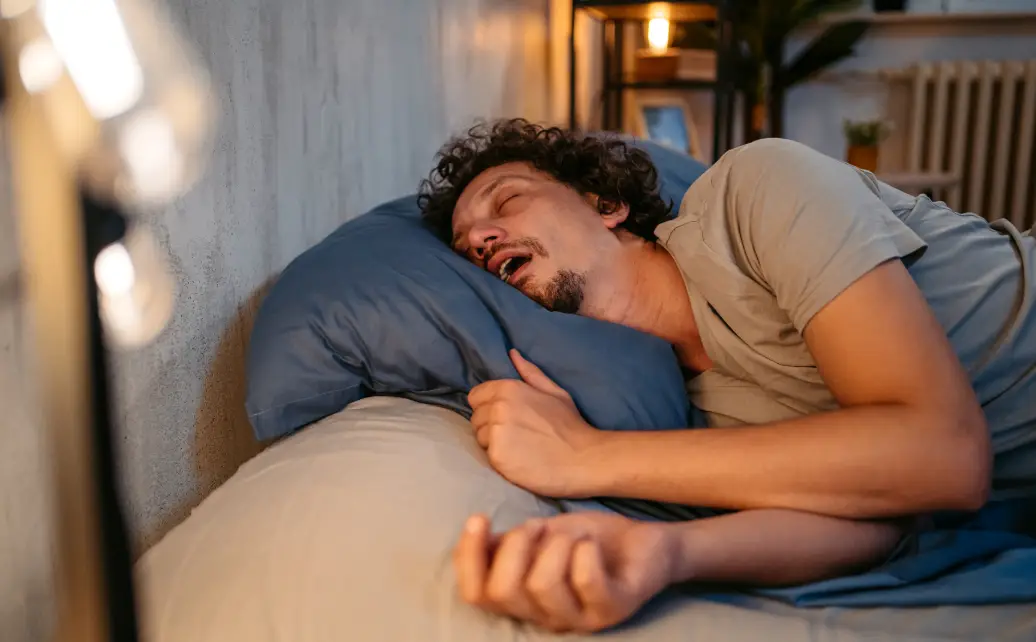
Sleeping in different positions, elevating your feet, nose tape, different pillows or even ear plugs.
Snorers will know this list all too well, with many couples desperately trying to soothe their ailment to help their partner get some sleep.
But now a list of three key warning signs has been revealed for snorers - or their partners - to take note of.
Regular snorers are not usually subject to any serious condition and it is a very common problem.
Advert
But the NHS has a handy list of key signs to look out for that could signal something more concerning, recommending those that spot the symptoms head to their GP to get things checked out.
Knowing what to look out for could make all the difference with these three little-known alerts.
Why do I snore?

Snoring can be caused by any number of things, which is why it can be difficult to know how to treat it.
Often, it is caused by the position of someone's tongue, mouth, throat or airways which causes vibrations as you breathe.
You're more likely to snore if you are:
- overweight
- a smoker
- someone who drinks too much alcohol
- sleeping on your back
What do the experts say?
Adeel ul-Haq, from bunkbeds.co.uk, has previously suggested one simple trick that's slightly bizarre.
Those who are desperate to soothe their snoring could try the hack which takes less than five minutes a day.
The sleep expert revealed to GloucesterLive that strengthening the muscles in your mouth could be a simple way of fixing your nighttime ailments.
All you have to do is grab a spoon, hold it in one hand and bring it to the front of your mouth.
Then you should push your tongue out, while bringing the spoon back in the opposite direction, being gentle to not hurt yourself.
According to Adeel, holding this position for five to ten minutes and repeating up to five times a day should mean you 'notice an improvement in your sleep quality'.
Three warning signs
Many may have already tried to lose weight or alter their drink and diet habits.
Yet, for some these lifestyle changes will not have made a difference.
According to the NHS website, those who have tried lifestyle changes and have not had any success should see their GP.
The second sign is for those whose snoring has had a 'big impact'.
This doesn't just mean for your partner but also for you.
Finally, if you feel sleepy during the day or your partner notices you stop breathing during your sleep, then you may have sleep apnoea.
Those making gasping or choking noises while they sleep could also have the condition, which can be serious if not treated.
For any of these three key signs, the NHS has recommended that sufferers head to their GP to check that their snoring is not a sign of something more serious.

How to treat snoring?
There are many ways to fix snoring but the best cause of treatment won't be the same for everybody.
Some try wearing devices to bring their tongue forward whilst they sleep.
Others try a chin slap to hold their mouth closed.
It seems a bit of trial and error is needed, with surgery even being an option for those who struggle to find a solution on their own.
